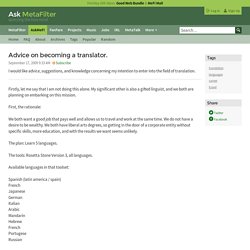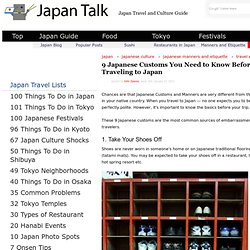

Fluent in 3 months – Language Hacking and Travel Tips — Unconventional language hacking tips from Benny the Irish polyglot; travelling the world to learn languages to fluency and beyond! Duolingo: Home. French expressions you won't learn at school.
German. How to Learn Basic Japanese. My experience with Japanese is probably a little bit more “mixed” than most people’s.

I didn’t really have to start studying it until it came to reading and writing, because I was bilingual by the time I started talking as a child. Nonetheless, I wouldn’t call Japanese a particularly easy language to learn, but hopefully my experiences with the language can help you get an idea of what to do and how to do it if you’re studying Japanese by yourself. 1. Learn Romaji & Hiragana Usually I would say straight up that Japanese has more or less 3 different writing systems. Romaji is the romanized version of Japanese words. I say learn romaji and hiragana simultaneously because at some point, you’re going to have to learn to read the characters by themselves. Learning the two takes a little bit of practice, but don’t let this put you off.
*Note: Hiragana, in Japanese writing, is mainly used to express words of Japanese origin. 2. 3. 4. 5. Example: 私はリンゴが欲しい。 It’s worth it. Italki: Learn a language online. Advice on becoming a translator. - translation languages career. I would like advice, suggestions, and knowledge concerning my intention to enter into the field of translation.

Firstly, let me say that I am not doing this alone. My significant other is also a gifted linguist, and we both are planning on embarking on this mission. First, the rationale: We both want a good job that pays well and allows us to travel and work at the same time. We do not have a desire to be wealthy. The plan: Learn 5 languages.
The tools: Rosetta Stone Version 3, all languages. Available languages in that toolset: Spanish (latin america / spain) French Japanese German Italian Arabic Mandarin Hebrew French Portugese Russian We currently both speak English (native) and Spanish (fluent). The appeal: We are both academically minded, and enjoy studying and hard work. The languages: The current plan is to have English, Spanish, French, German, and Mandarin under our belts. The questions: Should we choose different languages? How to become a location-independent freelance translator - Fluent in 3 months - Language Hacking and Travel Tips.
9 Japanese Customs You Need to Know Before Traveling to Japan. Posted by John Spacey, Japan Talk, January 23, 2012 Chances are that Japanese Customs and Manners are very different from those in your native country.

When you travel to Japan — no one expects you to be perfectly polite. However, it's important to know the basics before your trip. These 9 Japanese customs are the most common sources of embarrassment for travelers. 1. Shoes are never worn in someone's home or on Japanese traditional flooring (tatami mats). You'll always be given a place to put your shoes. There are often different slippers for the bathroom. 2. Japanese people don't have loud public conversations on their mobile phones. 3. When you go out for drinks it's rude to drink before cheers (Kampai!). 4. There are 10 basic rules of chopstick manners in Japan.
Don't use your chopsticks as a toy. Never eat directly from common dishes — put it on your plate first. Never stab something with chopsticks or stick your chopsticks in your rice. Avoid putting your chopsticks on the table.